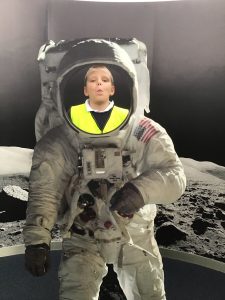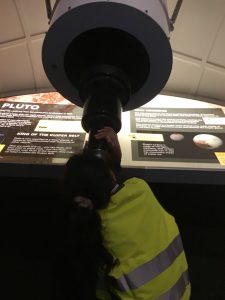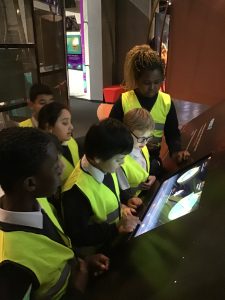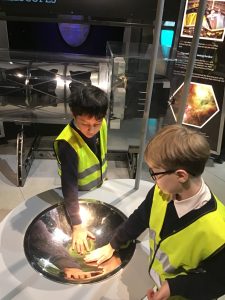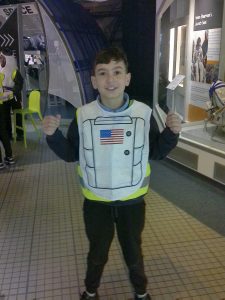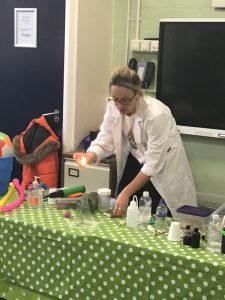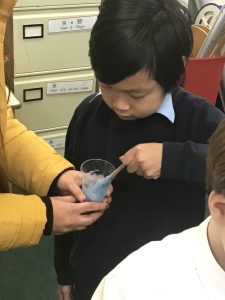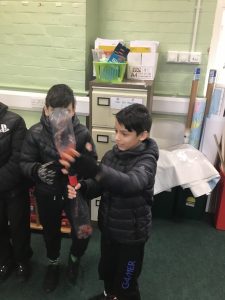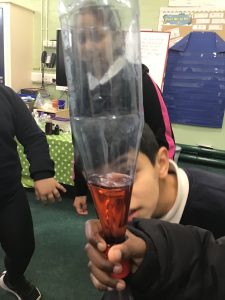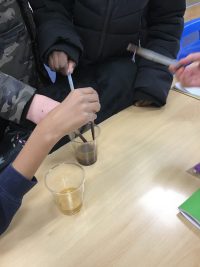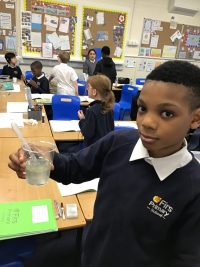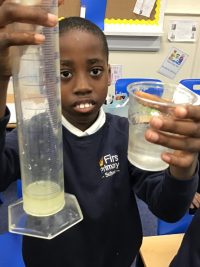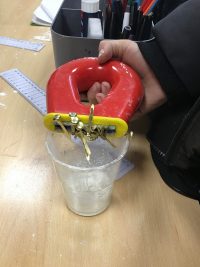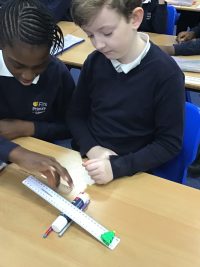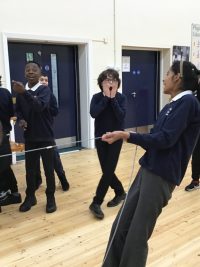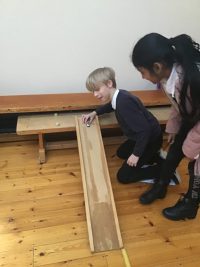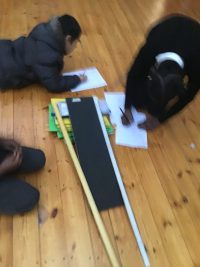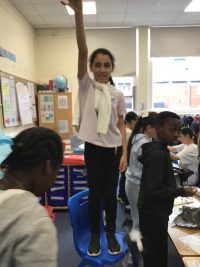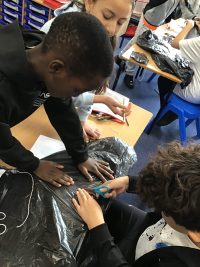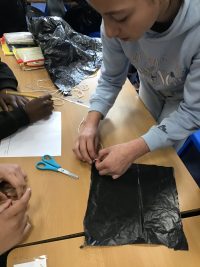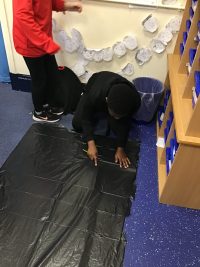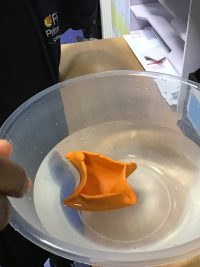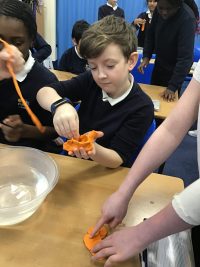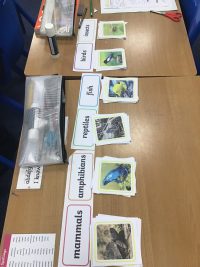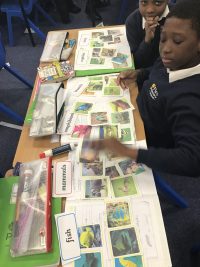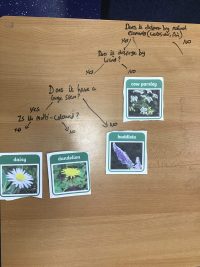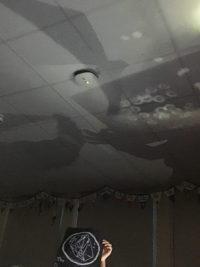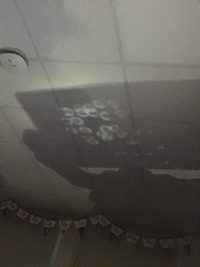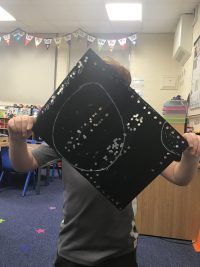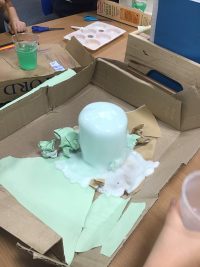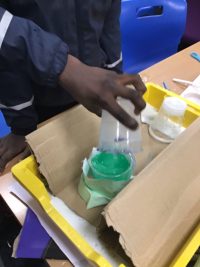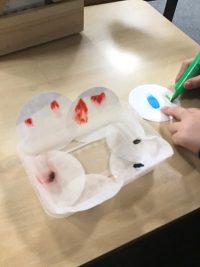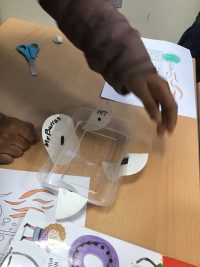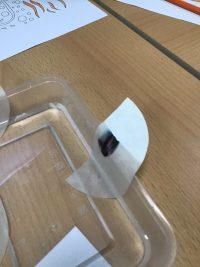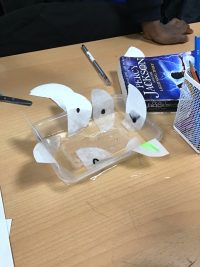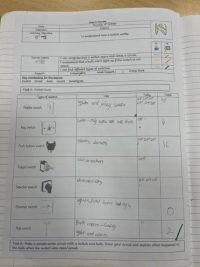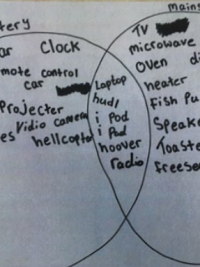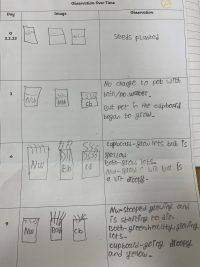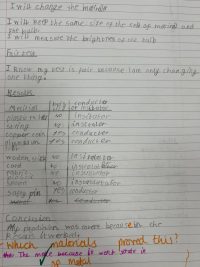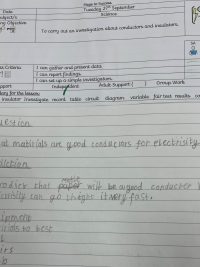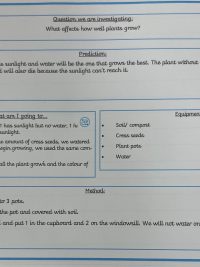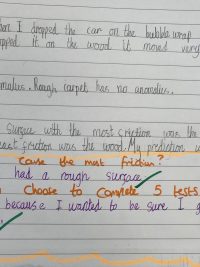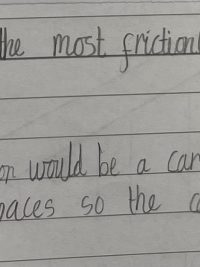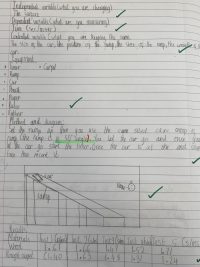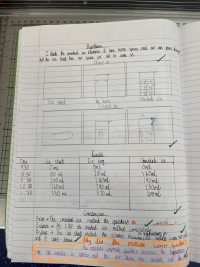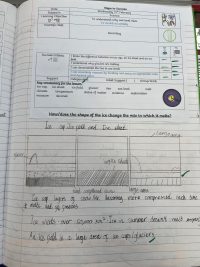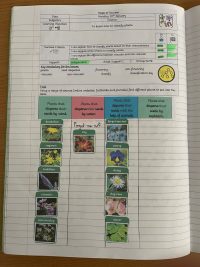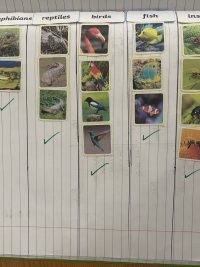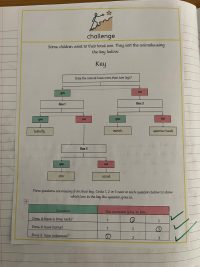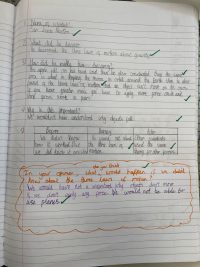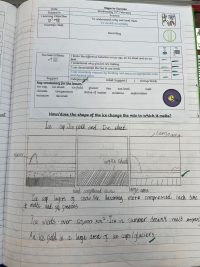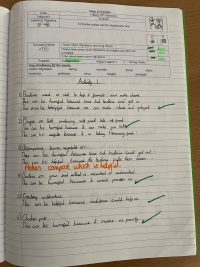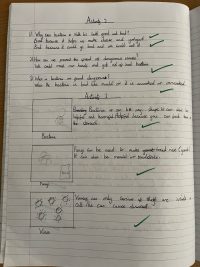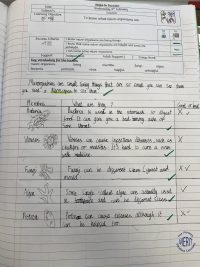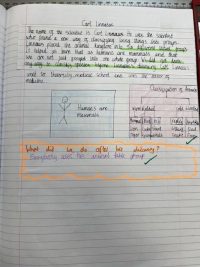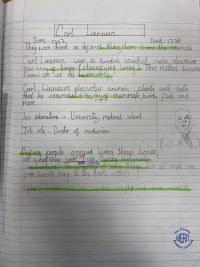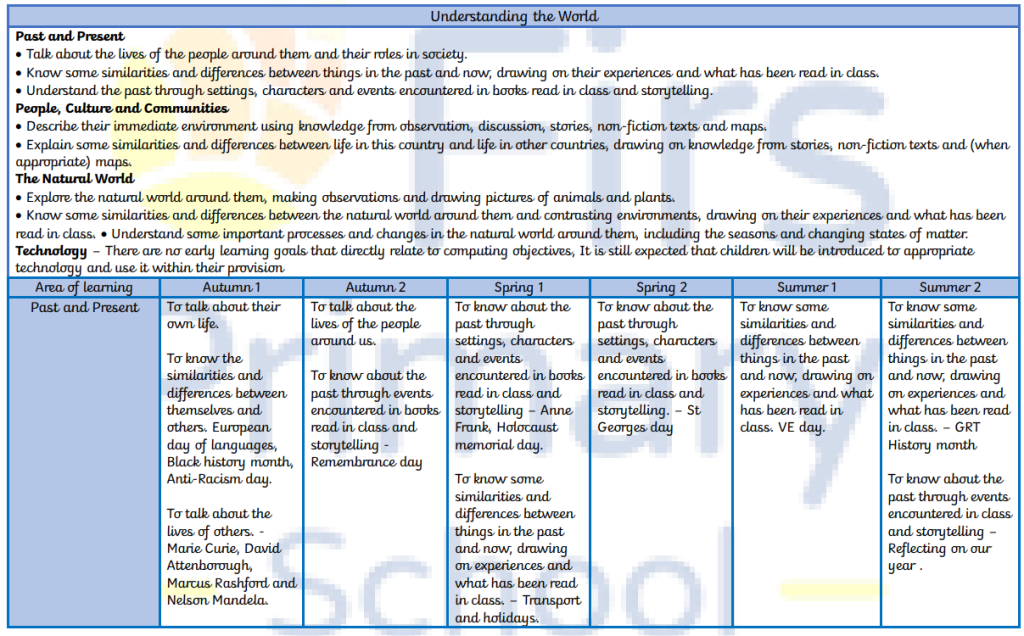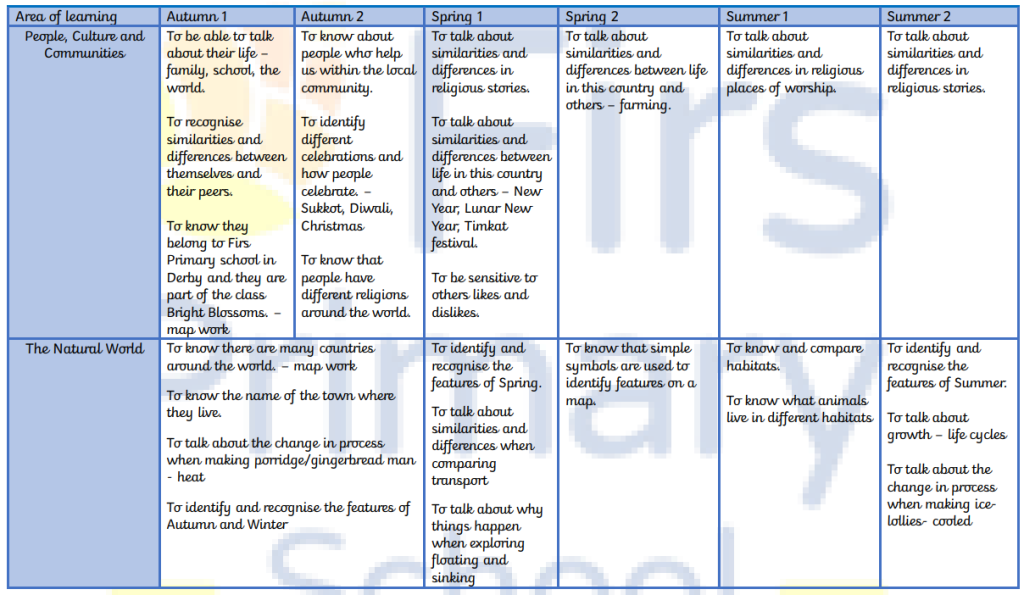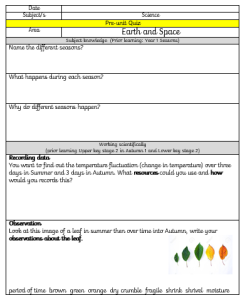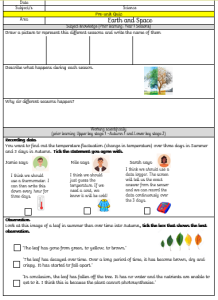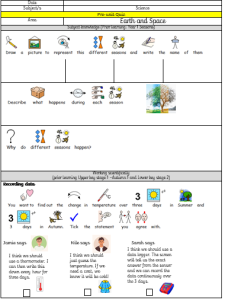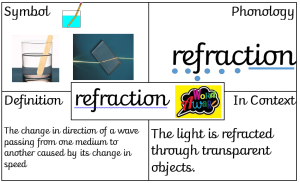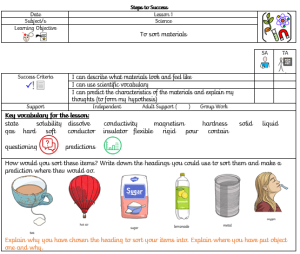We are delighted to announce, that we have received our Primary Science Quality Mark! We have been working hard as a school to develop our curriculum, ensuring we have the correct coverage that builds knowledge throughout the years, while retrieving content from previous years to support children who may not have all the knowledge required. Our curriculum involves exciting practical activities to engage all learners.
Science
Science
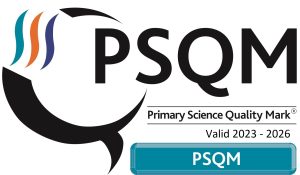
Last updated: September 2024

Trips, Visitors and Wow experiences
Take a look at the places we have been, people who have come into school and our memorable experiences!
Practical Investigations
Take a look at the Science we do in class!
Science Afterschool Club!
Come take at our afterschool Science club! This is where we complete fun practical investigations for children to engage further with Science.
Our curriculum at Firs primary school, runs within a 2 year cycle, due to mixed year groups within the juniors. The core objectives will be taught based off the National Curriculum’s statutory objectives. Some objectives may be revisited and extended to support the year group.
At Firs Primary school, our lessons are tailored and designed to:
- Allow children to undertake scientific enquiries to help them answer scientific questions about the world around them to ensure inclusive practice
- Equip children with the scientific knowledge to understand the uses and implications of science, developing children’s understanding of famous scientific discoveries and how they impact our research today
- Teach the children to use a range of methods to communicate their scientific information and present it in a systematic and scientific manner including diagrams, graphs, tables and charts
- Develop the children’s enthusiasm and enjoyment of scientific learning and discovery
- Ensure the lessons are accessible to all learners, acknowledging our high transience within the school – developing children’s understanding from a range of starting points
- We endeavour to ensure that the Science curriculum we provide will give children the confidence and motivation to continue to further develop their skills into the next stage of their education and life experiences.
- Ensure vocabulary is taught explicitly, using word aware, visual examples/images and communication Inprint to support children reinforce and learn new vocabulary, while putting the words into context for subject specific vocabulary
- Develop children’s oracy while communicating their scientific skills
- Provide additional opportunities where possible to enhance and contextualise learning (including activities from British Science week, competitions and STEM activities)
More information can be found about our intent, implementation and impact at the bottom of the page under ‘FIRSY Foundations’.
The principle focus for the National Curriculum is split in to pairs of year groups: Year 1 and 2 (KS1); Year 3 and 4 (LKS2); and Year 5 and 6 (UKS2). This focus outlines what the aim of the science curriculum is for those year groups and what children will learn to do. These can be seen below. In addition to this, for each pair of year groups there are key objectives for ‘Working Scientifically’ these objectives may be discreetly taught, but will also be embedded throughout other areas of the Science curriculum.
The new EYFS Curriculum progression grids 2024, have been linked clearly to the KS1 National Curriculum to map progression. This shows what knowledge from “Understanding of the World: The Natural World” for a “Good Level of Development” (GLD) child should have when they enter KS1.
EYFS children will have the opportunity to explore the natural world through their continuous provision, making links to the real world and the understanding of how things work around them. They will have tailored, short burst input sessions to focus on a current learning topic, including ones that will have a Science driven focus.
If your child is in EYFS and you would like to see the full document, in can be found below.
The principal focus of science teaching in key stage 1 is to enable pupils to experience and observe phenomena, looking more closely at the natural and humanly constructed world around them. They should be encouraged to be curious and ask questions about what they notice. They should be helped to develop their understanding of scientific ideas by using different types of scientific enquiry to answer their own questions, including observing changes over a period of time, noticing patterns, grouping and classifying things, carrying out simple comparative tests, and finding things out using secondary sources of information. They should begin to use simple scientific language to talk about what they have found out and communicate their ideas to a range of audiences in a variety of ways. Most of the learning about science should be done through the use of first-hand practical experiences, but there should also be some use of appropriate secondary sources, such as books, photographs and videos.
The principal focus of science teaching in lower key stage 2 is to enable pupils to broaden their scientific view of the world around them. They should do this through exploring, talking about, testing and developing ideas about everyday phenomena and the relationships between living things and familiar environments, and by beginning to develop their ideas about functions, relationships and interactions. They should ask their own questions about what they observe and make some decisions about which types of scientific enquiry are likely to be the best ways of answering them, including observing changes over time, noticing patterns, grouping and classifying things, carrying out simple comparative and fair tests and finding things out using secondary sources of information. They should draw simple conclusions and use some scientific language, first, to talk about and, later, to write about what they have found out.
The principal focus of science teaching in upper key stage 2 is to enable pupils to develop a deeper understanding of a wide range of scientific ideas. They should do this through exploring and talking about their ideas; asking their own questions about scientific phenomena; and analysing functions, relationships and interactions more systematically. At upper key stage 2, they should encounter more abstract ideas and begin to recognise how these ideas help them to understand and predict how the world operates. They should also begin to recognise that scientific ideas change and develop over time. They should select the most appropriate ways to answer science questions using different types of scientific enquiry, including observing changes over different periods of time, noticing patterns, grouping and classifying things, carrying out comparative and fair tests and finding things out using a wide range of secondary sources of information. Pupils should draw conclusions based on their data and observations, use evidence to justify their ideas, and use their scientific knowledge and understanding to explain their findings.
At the end of year 5/6 children will have been taught the necessary skills to progress to Key Stage 3 in year 7. The children will be able to use their knowledge of working scientifically to become increasingly accurate and continue to develop their explanations of their understanding.
Scientific attitudes
– pay attention to objectivity and concern for accuracy, precision, repeatability and reproducibility
– understand that scientific methods and theories develop as earlier explanations are modified to take account of new evidence and ideas, together with the importance of publishing results and peer review
-evaluate risks.
Experimental skills and investigations
-ask questions and develop a line of enquiry based on observations of the real world, alongside prior knowledge and experience
– make predictions using scientific knowledge and understanding
– select, plan and carry out the most appropriate types of scientific enquiries to test predictions, including identifying independent, dependent and control variables, where appropriate
– use appropriate techniques, apparatus, and materials during fieldwork and laboratory work, paying attention to health and safety
– make and record observations and measurements using a range of methods for
different investigations; and evaluate the reliability of methods and suggest possible improvements
– apply sampling techniques. Analysis and evaluation
– apply mathematical concepts and calculate results
– present observations and data using appropriate methods, including tables and graphs
– interpret observations and data, including identifying patterns and using observations, measurements and data to draw conclusions
– present reasoned explanations, including explaining data in relation to predictions and hypotheses
– evaluate data, showing awareness of potential sources of random and systematic error
– identify further questions arising from their results.
Measurement
– understand and use SI units and IUPAC (International Union of Pure and Applied Chemistry) chemical nomenclature
– use and derive simple equations and carry out appropriate calculations
– undertake basic data analysis including simple statistical techniques.
Children will develop their concepts but branch out into different strands (Physics, Chemistry and Biology) to explore more in depth concepts. These can be found on the key stage 3 National Curriculum document.
EYFS
In the Early Years Foundation Stage (EYFS) Science is taught in a variety of different ways including; independent exploration and play while accessing continuous provision, through adult led enhancements and through teacher directed activities. Some science objectives are focused on within continuous provision for a set length of time (eg during the topic) others can be accessed throughout the year; such as the construction area and the garden. Members of staff have a sound understanding of the Early Years Framework and will ask carefully thought out questions to probe children’s understanding and develop their learning during their independent play within the continuous provision
Key Stage 1 and 2
In KS1 and KS2 the frequency of science lessons depends on the topic and unit being taught. Science lessons are taught as often as is required to ensure adequate coverage of the National Curriculum objectives, taking into account how the objectives will be best met by the children to allow for good progress and knowledge retention.
In KS1 and KS2 science objectives are taught on a two-year cycle within each phase (KS1, LKS2 and UKS2). This ensures the school is able to meet the needs of classes with mixed year groups. This can be seen within our ‘Whole School Curriculum Overview.’ Click here
Science is planned within topic units to ensure that, wherever appropriate, cross curricular links can be made with other subjects including; design and technology, computing and geography. This enables children to make links in their learning and supports knowledge retention.
The objectives within the ‘Working Scientifically’ strand of the National Curriculum underpin the learning in all science units, and guidance documents set out suggested investigations and experiments for each science unit. The Progression and Coverage document (at the bottom of the page) also sets out key vocabulary to be taught in each science unit.
Timetable
Science, where possible is linked to the topic of that half term. Through mapping the national curriculum, science isn’t taught every half term. Science is taught progressively through the topics and half term, not through “science weeks” although this may be used as an opportunity to extend their learning further, past the national curriculum or complete more complex projects.
Timetabling is flexible throughout the school and therefore science may not always be taught in the same slot. This ensures that interventions or other opportunities such as family learning, boxing for well-being, do not replace the learning of science for some pupils. Science may also be taught in the morning or the afternoon and this is carefully planned for and decided by the teacher.
The Pre-unit quiz is designed to assess the prior knowledge of our children, so our teachers are fully aware of the different children’s starting points. We can then use this to adapt our lessons, to ensure any missed concepts are revisited before the lessons begin.
Here is an example of our year 5/6 Pre-unit quiz.
The new Pre-unit quiz will be in place across the school. This will enable teachers to further encourage independence while children complete the quiz and assess working scientifically skills that are taught throughout the year. We will be using more images and sentence stems to support children and those who are New to English (NTE).
Children are then assessed via an online quiz at the end of each Topic unit, which will include science questions. These questions are based on the key areas of learning children will have received. This quiz data supports teachers to make an accurate assessment of where your child is currently working (Below, Working Towards, Age Related or Greater Depth).
Vocabulary will be taught throughout the lesson. Children will be reintroduced to vocabulary they have already heard, to help them remember and consolidate. Children will be able to use the vocabulary on the working walls and also use our ‘word aware’ strategy to enable children write the word phonetically, use it in a sentence and see images. Subject specific vocabulary will also be found at the top of the success criteria within their books or whole class topic book.
Scientific investigations will happen at least once within each unit of Science. Where Science is taught in that half term, there would be a minimum of one piece of work that has a practical element to ensure all children can join in.
When teaching Science at Firs Primary School, we aim to make the subject as exciting as possible to get the children enthusiastic about science. All Science in EYFS is taught practically.
As children take part in different experiments and investigate key questions, they will begin to record what they have done. In each year group children will be expected to write up their experiment under the subheadings and using key vocabulary. The expectations of how to write up experiments is progressive and has been developed in line with the ‘Working Scientifically’ objectives for each pair of year groups.
Children are encouraged to work scientifically within all of their science lessons throughout. These are taught discreetly within science, some lessons having more of a focus on particular areas than others. This may be completed discreetly. Children will be encourage to:
- Ask scientific questions
- Conduct research
- Predict and hypothesise
- Plan an enquiry
- Observe
- Measure and record data
- Interpret results
- Conclude their results
After each large investigation where we have made a prediction/hypothesis, we will complete a write up. These are carefully structured to pull in all of our scientific skills the children have been learning about discreetly and discuss them upon writing them down.
The progression grid below can be seen to show how we develop our scientific enquiry skills.
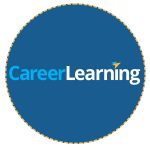
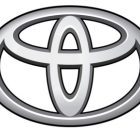
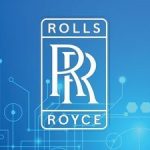
To continue to raise the profile of science within the school we make links to businesses where possible to show children how science is applied in the real world. In previous years, for instance, children have taken part in events and visits with; ‘The Big Bang’ (UK Young Scientists and Engineers Fair), Toyota, Rolls Royce -STEM workshops and ‘Destination Imagination’.
Careers logs are also used to record different professionals that have come into school or video conferences, to allow the children to see a broad range of jobs, including ones that link to Science or STEM subjects. This is designed to help children see the purpose of Science and what potential careers they could enter in the future, raising an awareness of career opportunities.
In 2022, we are have started using our new Career Journals. These are used across the school to record all of our careers visitors, within different topic areas, that see us and talk about their jobs. Some of these will include Science/ STEM careers. This is to promote the different jobs there are and what skills are needed to become an expert in that area.
Here you can find any of the latest competitions, challenges and extra curricular activities that the school are running/ promoting.
There are no current competitions – but come back soon for more information about British Science Week in school and the British Science Week competition poster.
British Science Week will be taking place in school between:
7th – 16th March 2024
Theme: Change and Adapt
Follow the links below for the key documents that explain how Science is taught in Firs Primary School.
At Firs, we continued to teach our curriculum with some adaptations during National Lockdown. For pupils at school, the science curriculum at school was taught as normal (with adjustments made for practical science inline with the risk assessment). For pupils at home, adaptations were made where children wouldn’t have the resources at home that would be used in school. However, the adaptions that were made, still allowed children to achieve the same learning objective as those in school, just in a different way. As well as adaptations to the task/resources, pupils’ may have been taught science through online zoom lessons, pre-recorded videos by the teacher (such as on loom), or links to online videos (such as National Oak Academy or BBC Bitesize). More information about our teaching and learning during lockdown can be found on our “Whole School Remote Learning Plan” Click here
© Copyright 2025 Firs Primary School
Part of the Derby Diocesan Academy Trust (DDAT) family of schools
Registered Address: Unit 3 Top Floor Endcliffe Mount, Deepdale Business Park, Ashford Road, Bakewell, Derbyshire. DE45 1GT
Tel: 0333 3554353, Email: info@ddat.org.uk

